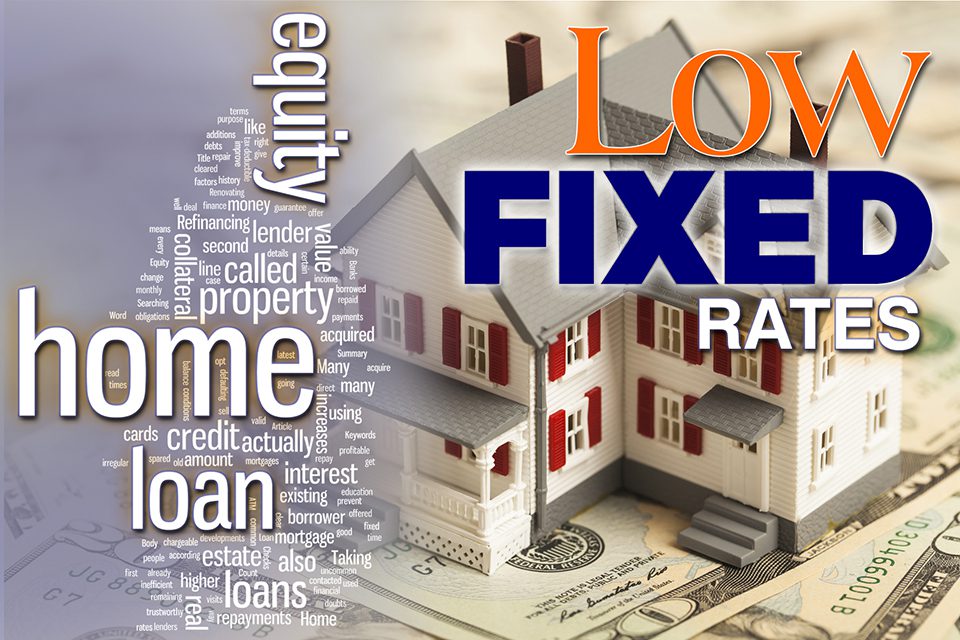A Detailed Guide to Equity Release Mortgages in the UK
A Detailed Guide to Equity Release Mortgages in the UK
Blog Article
Checking Out the Various Types of Equity Release Mortgages Available Today
Equity Release mortgages existing various choices for property owners aged 55 and over. equity release mortgages. These financial products cater to various needs and preferences, allowing individuals to access funds from their residential or commercial property. From lifetime mortgages to shared gratitude home loans, each type offers distinct benefits. Comprehending these options is vital for making educated decisions. What variables should one think about when picking the most suitable equity Release strategy? The information that follow might clarify this essential topic
Understanding Equity Release Mortgages
Equity Release home mortgages give house owners, usually those aged 55 and over, with a means to access the worth locked up in their residential property without needing to offer it. This economic option permits individuals to transform a portion of their home equity right into money, which can be used for numerous purposes, such as home improvements, repaying financial obligations, or funding retirement.Equity Release can take various forms, but it essentially includes borrowing against the value of the home while keeping possession. Home owners can select to get a round figure or a collection of smaller sized payments, depending upon their monetary needs and preferences.Additionally, the quantity available for Release is affected by the residential property's worth, the house owner's age, and specific lending institution standards. On the whole, understanding equity Release home mortgages is crucial for property owners to make informed decisions concerning taking advantage of their home's equity while taking into consideration the long-lasting implications.
Life time Mortgages
Life time home mortgages stand for among the most popular types of equity Release. This economic item allows house owners, usually aged 55 or older, to obtain versus the value of their building while preserving possession. The financing, which is secured against the home, builds up rate of interest gradually yet does not require monthly settlements. Instead, the finance and accumulated passion are repaid when the house owner dies or relocates right into long-lasting care.Lifetime mortgages provide flexibility, as debtors can select to receive a swelling amount or go with a drawdown facility, accessing funds as needed. Significantly, lots of strategies featured a no-negative-equity guarantee, guaranteeing that consumers will never ever owe greater than the worth of their home. This attribute offers assurance, enabling people to appreciate their retirement without the worry of diminishing their estate. Overall, lifetime home loans act as a sensible option for those looking for financial backing in later life.
Home Reversion Plans

Drawdown Lifetime Mortgages
While several home owners look for methods to access their wealth, drawdown lifetime home mortgages provide a versatile option that permits people to Release funds gradually. This kind of equity Release home loan enables homeowners to obtain against the value of their property while preserving possession. Unlike conventional life time home loans, drawdown plans permit debtors to access a portion of their equity upfront and take out extra funds as required, as much as a predetermined limit.This attribute can be particularly useful for those who wish to handle their financial resources carefully, as it decreases rate of interest buildup by only billing interest on the quantities drawn. Furthermore, drawdown life time home loans often include a "no negative equity assurance," making certain that customers will certainly never owe greater than their home's worth. This option fits senior citizens who prefer economic security and versatility, permitting them to meet unforeseen expenditures or keep their lifestyle without having to market their residential or commercial property.
Improved Life Time Mortgages
Boosted Lifetime Mortgages supply distinctive benefits for eligible property owners looking for to Release equity from their homes. Recognizing the qualification standards is important, as it identifies who can benefit from these specialized financings. It is additionally vital to review the possible disadvantages connected with improved choices, making sure an all-round viewpoint on their use.
Eligibility Criteria Clarified
Recognizing the qualification requirements for Enhanced Life time Mortgages is essential for potential candidates looking for to access the equity in their homes. Usually, applicants must be aged 55 or older, as this age requirement is standard in the equity Release market. House owners ought to have a property valued at a minimal threshold, which can differ by lending institution. Notably, the residential property has to be their key home and in excellent condition. Lenders frequently analyze the house owner's wellness status, as particular health and wellness problems may boost eligibility and advantages. Additionally, candidates ought to not have existing significant debts safeguarded against the building. Meeting these standards allows individuals to discover Enhanced Lifetime Home mortgages as a viable choice for accessing funds bound in their homes.
Benefits of Improved Home Mortgages
After clarifying the eligibility requirements, it comes to be evident that Improved Life time Home mortgages provide a number of substantial benefits for property owners seeking to utilize their residential or commercial property equity. Mostly, they give accessibility to a bigger car loan quantity contrasted to typical life time mortgages, benefiting those with health conditions or age-related elements that get redirected here enhance their life span threat. This boosted loaning capacity permits home owners to fulfill numerous economic requirements, such as home renovations or retired life costs. Furthermore, these home loans normally include versatile payment options, enabling borrowers to handle their funds better. The no-negative-equity assurance additionally guarantees that homeowners will certainly never ever owe more than their home's value, giving tranquility of mind. view publisher site Generally, Enhanced Life time Home loans offer a compelling option for qualified property owners seeking economic options.
Prospective Drawbacks Taken Into Consideration
While Improved Lifetime Home loans provide numerous advantages, potential downsides require cautious consideration. One substantial worry is the effect on inheritance; the equity launched reduces the worth of the estate left to recipients. Additionally, these home mortgages can accrue significant interest gradually, resulting in a substantial financial obligation that might exceed the initial funding quantity. There may likewise be constraints on residential property modifications or rental, limiting house owners' flexibility. Improved items usually require particular health and wellness problems, suggesting not all homeowners will qualify. Lastly, handling the costs and costs associated with these mortgages can be complex, potentially resulting in unforeseen expenses. Consequently, people need to extensively analyze their scenario and get in touch with economic experts prior to proceeding.
Shared Gratitude Mortgages
Shared Gratitude Home loans represent a distinct financial setup that enables house owners to access equity while sharing future home value raises with the lending institution. This technique provides potential advantages such as decreased monthly settlements, however it also features disadvantages that must be meticulously thought about. Understanding the address qualification requirements is crucial for those thinking about this option.
Principle Summary
Equity Release mortgages, specifically in the form of common gratitude home mortgages, provide home owners a distinct economic service that permits them to access funds by leveraging the worth of their property. In this plan, a lending institution offers a car loan to the home owner, which is usually settled through a share of the residential property's future appreciation in value. This suggests that when the homeowner offers the building or passes away, the lender gets a portion of the boosted worth, instead of simply the first loan quantity. Shared recognition home mortgages can be appealing for those looking to supplement their income or finance significant costs while keeping ownership of their home. The economic implications of shared recognition must be thoroughly taken into consideration by potential customers.
Drawbacks and advantages
Although common admiration home loans can provide significant economic advantages, they also feature significant downsides that potential debtors must think about. These home mortgages permit home owners to accessibility equity in their buildings while sharing a section of any future admiration with the lender. This setup can be valuable throughout times of increasing residential or commercial property values, using considerable funds without monthly repayments. Nevertheless, the major downside is the potential loss of equity; house owners might finish up with appreciably reduced inheritance for beneficiaries. In addition, the complexity of the terms can cause misunderstandings pertaining to payment responsibilities and the percent of recognition owed. As a result, it is essential for debtors to consider these variables very carefully before committing to a common appreciation home mortgage.
Qualification Demands
What standards must house owners fulfill to get a common recognition home loan? Mostly, prospects have to be at the very least 55 years of ages, ensuring they are within the target group for equity Release products. Furthermore, the residential property needs to be their primary residence and normally valued above a defined minimum threshold, often around ? 100,000. Lenders additionally examine the homeowner's financial circumstances, including income and exceptional debts, to identify they can take care of the home mortgage sensibly. Notably, the building needs to remain in good problem and without considerable legal encumbrances. House owners should additionally have a clear understanding of the terms, including just how recognition will certainly be shown the lending institution upon sale or transfer of the residential or commercial property, as this impacts general returns.
Selecting the Right Equity Release Choice

Frequently Asked Questions
What Age Do I Required to Be for Equity Release?
The age requirement for equity Release commonly begins at 55 for a lot of strategies. Nonetheless, some providers may supply choices for those aged 60 and above, mirroring differing terms based on specific circumstances and loan provider policies.
Will Equity Release Affect My Inheritance?
Equity Release can influence inheritance, as the amount borrowed plus rate of interest decreases the estate's worth. Heirs might obtain less than prepared for, relying on the residential or commercial property's admiration and the overall financial debt at the time of passing.
Can I Move Residence With Equity Release?
The concern of moving home with equity Release emerges frequently. Normally, people can transfer their equity Release strategy to a new residential or commercial property, but specific terms might use, needing appointment with the lender for support.
Exist Charges Related To Equity Release Mortgages?
Fees linked with equity Release home loans can consist of setup costs, evaluation costs, and legal prices. In addition, there may be early settlement costs, which can affect the overall cost and economic effects for the debtor.
How Does Equity Release Influence My Tax Circumstance?
Equity Release can influence one's tax scenario by potentially boosting taxed revenue, as launched funds are taken into consideration capital. It usually does not sustain immediate tax responsibilities, making it vital to speak with an economic advisor for tailored guidance.
Final thought
In recap, the variety of equity Release home mortgages available today uses homeowners aged 55 and over several paths to access their home's worth - equity release mortgages. Whether going with a lifetime home loan, home reversion strategy, or other choices, each alternative presents distinct benefits customized to specific economic needs. Careful consideration and examination with an economic advisor are important to ensure the picked equity Release solution aligns with personal goals and financial situations, inevitably facilitating informed decision-making for a secure financial future. Equity Release mortgages present numerous choices for property owners aged 55 and over. Equity Release home loans supply homeowners, commonly those aged 55 and over, with a way to access the worth linked up in their residential property without requiring to market it. Boosted Life time Home mortgages use unique advantages for qualified homeowners seeking to Release equity from their residential properties. Equity Release mortgages, specifically in the kind of shared appreciation home mortgages, supply house owners a distinct financial remedy that enables them to access funds by leveraging the worth of their residential property. In summary, the selection of equity Release mortgages offered today provides home owners aged 55 and over several pathways to access their building's value
Report this page